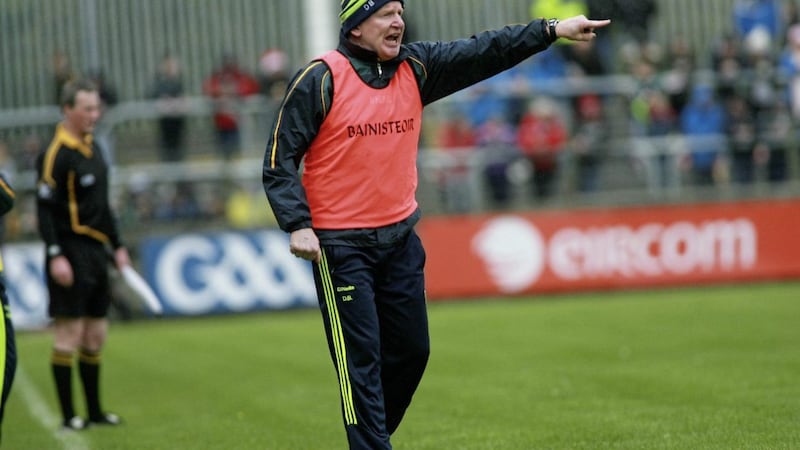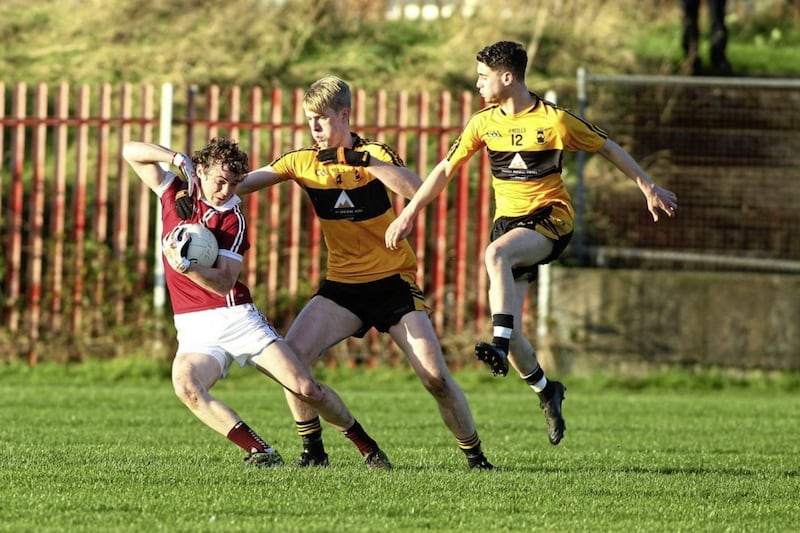AS one season ends another is about to begin. The seemingly never-ending cycle of inter-county football will gather pace for the majority of teams whose season ended abruptly in early August.
At this time of year county managers are looking at a blank page. This can be a terrifying experience for some. For others it is a blank page which gives them an opportunity to express themselves, to devise a
gameplan and assert their control. This is the time to be creative. In my mind, this is one of the most difficult yet critical roles for any manager.
Creativity is an attribute that few possess. It is about being innovative and imaginative. It is about having specialised knowledge of the talents at one’s disposal and knowing how to motivate the people who possess them.
The most creative people I know are not managers. In fact, they are not employees. They either possess the motivation to run their own business or they
choose an idle life.
After all, how can you be creative when you have targets to meet, when you are met with complaints and staffing issues, when you have to account for your every minute of every day? It takes time and mind space to be creative.
Some even favour a tipple or 10 before the creative juices flow, which is why business people in certain circles frequently go for a social drink or meal after work – not that I’m endorsing alcohol as an fitting liberator in any business or sporting context.
In the heartland of south Armagh you are either employed or you are innovative.
The same culture can be seen along the border.
For many years it was the only way to earn a crust and, sure, the craic from pulling something off and profiting was ample spur to try again. As Brexit unfolds it will be the innovator who will prosper once more.
Admittedly, the trials of a GAA manager appear more complex. The big challenge is to avoid fixations on how frequently other managers reportedly train or how they structure their teams or even how they reportedly interact with their players.
Chat with 10 players from any successful panel and undoubtedly three will harbour a grudge with the management.This is no different for the less successful teams.
A blank page offers managers freedom to write, to scheme, to formulate in whichever way
they choose. It is their blank page. It should not be tainted by the sky blue of Dublin or the red fingerprints of Tyrone.
A rehash of the blanket defence will fail as will a remodelling of the counter-attack formation. Surely it is time to consign the carbon copier to the dustbin.
The stark reality is that there is no one perfect system that suits all teams. A style of play must match the talents at one’s disposal.
Managers aren’t expected to come up with the gameplan themselves.
That is not how creativity works. It requires a team of people agonising over facts, not statistics, and being able to apply their specialist knowledge of the game.
It is impossible to be creative without being analytical. It is about bouncing ideas off each other and opening one’s mind to other possibilities and then, in the words of my mother, what needs to happen is that people need to “sleep on it” before making a decision.
Research has shown that sleep aids the creative process. In many ways, it helps to join the dots and to bring the sketch plan to life.
There is a natural hibernation period in the GAA calendar for county teams.
While players are engaging in strength and conditioning, managers can use this time of the year to incubate their thoughts and to firm up their plans.
Pitches are so good nowadays that the months of January and February serve as a test period for the new plans with a view to putting them into game practice in time for the new season to start.
The life of a GAA manager has become ever more perilous.
Their position is under public scrutiny all year round.
The really good managers are remembered in casual conversation by lines such as ‘Jim Gavin’s men’, or ‘Jimmy [McGuinness] has them lads playing well’.
One new manager looking to make his mark in the season ahead is Donegal’s Declan Bonner. If he continues with the blueprint designed by his predecessor, Rory Gallagher (inset), then he will face criticism from day one. Similarly, if Rory rigorously applies his teachings to Fermanagh, frustration will grow with each passing game.
That’s not to undermine Rory’s skills – I certainly rate him highly and I admired his work over many years in Donegal as a coach and later as the manager.
Yet Declan does not want an evolution of their 2017 playing style.
He needs to devise his own playing style, albeit one which retains the many things that have stood to Donegal in recent years. But the final product has to be his plan.
Ten months will tell the tale of whether or not his blank page is shaping up to be a masterpiece.








